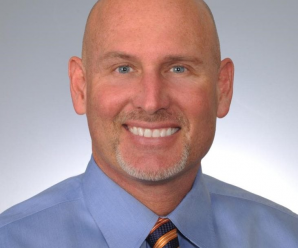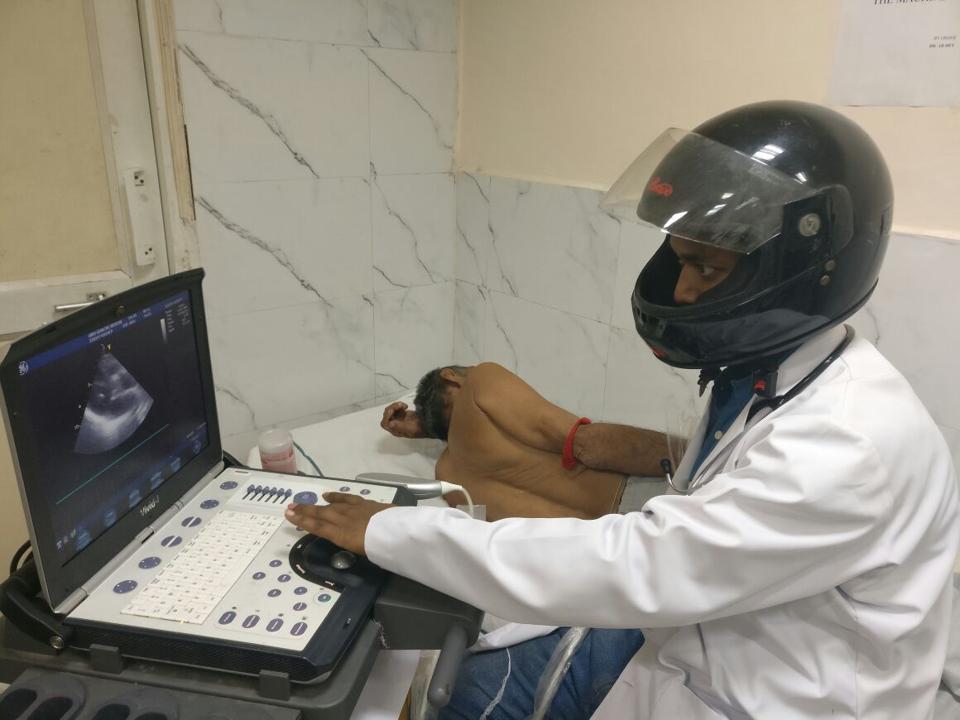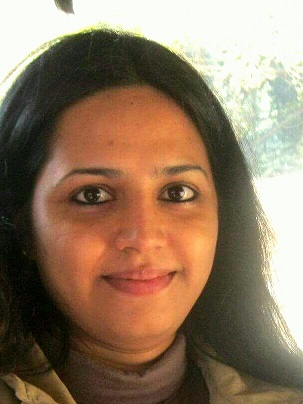An alternative to Alternative Medicine?
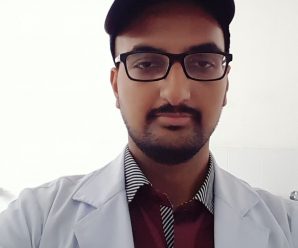
There cannot be two kinds of medicine — conventional and alternative. There is only medicine that has been adequately tested and medicine that has not, medicine that works and medicine that may or may not work. Once a treatment has been tested rigorously, it no longer matters whether it was considered alternative at the outset. If it is found to be reasonably safe and effective, it will be accepted

Marcia Angell (first woman editor-in-chief, NEJM)
Louis Pasteur and Robert Koch both deserve enormous applause from the modern medical community for laying the foundation of alternative evidence based medicine being practiced today. Alternative, by definition is a very relative term. What might be regarded alternative today would quite possibly become mainstream in any domain and vice versa. The history of alternative medicine dates back to the history of human civilization. Allopathy or modern medicine by no means could compete with many these treatment options in terms of historical importance. Instead the modern medicine has a scientific and fact basis. Evidence changes as our understanding and scientific interpretation of the world around us changes which in turn is in favor of allopathy as this lays a very strong foundation for its eternal evolution. Many of the Darwin’s original principles are true till date. Like Usher said- “If you don’t evolve, you dissolve. You evolve or you evaporate.”
The story dates back to inception of Germ Theory of Disease. Antoine Bechamp, a contemporary of Pasteur proposed something known as pleomorphism which disapprove that germs are real cause of disease. The controversy was important because germ theory deniers are mostly in two forms. Firstly who just plainly deny the theory without much motive further as you can see with many people with HIV/AIDS denalism and secondly those who lay Bechamp’s theory and many others to prove their point for the use of alternative medicine. Harriet Hall published an article in the magazine Skeptic describing her experience with germ theory deniers. She stated that unlike many other types of reality deniers who are merely annoying and rather make human society more interesting, these germ theory deniers and hard-core practitioners of alternative medicine are not harmless for many reasons including the delay in seeking modern medicine or their reluctance in accepting vaccination to children and adults. One of the most common reason given on why the world accepted Pasteur’s theory and not Bechamp’s was that germ theory of disease encourage the future economic giants in the form of pharmaceutical companies though penicillin was discovered only in late 1920s decades after the dichotomy of medical speculation.
One of the most common example of alternative medicine is homeopathy which could be very conveniently regarded as the antonym of allopathy or modern medicine. It has some basic principles, one of which is Similia Similbus Curentur meaning like cures like. If you are allergic to a substance then the medication for the allergy would most probably contain the same ingredients you’re allergic to in much less concentration to awaken or strengthen the vital force that is operating the body. The second basic principle is that of serial dilution process which according to homeopaths makes it more potent, hence the term potentization. Most of the scientific disagreement starts with the basic principles itself. If these were to be true according to science, then what we have learnt so far must be at least partly faulty. Many clinical advice in modern medicine like staying away from the allergens or foundation of biochemistry reflects a perfect contradiction to the homeopathic principles.
Potentization is one of the most controversial concepts of homeopathy, which our current understanding of science could never explain. According to homeopathy the more dilute is the solution the more powerful it is to evoke a response from the vital force of the body. The dilutions are more than what we would possibly love to imagine. A 20 C (“C” roman numeral means the mixture has one part ingredient and 99 parts water) concentration for example is equivalent to dissolving one aspirin pill into the Atlantic ocean while there are much more extreme versions that are available. For a 30 C pill, if we want a pill of the size of a single atom of the original ingredient then our pill would have been the diameter equal to the distance between the sun and the earth. The idea proposed by many modern day homeopaths is a concept known as water memory in which water remembers what it came in contact and though no original ingredient is preserved after serial dilutions, still the water has medicinal properties because it once came in contact with the ingredient. Scientific studies and researches find it erroneous at every level of justification. In his famous TED talk, scientific skeptic James Randi swallowed so called lethal dose of homeopathic sleeping pills in front of audience just to prove his point of quackery and made a funny remark on fanciful death of a person due to homeopathic overdose as he forgot to take his pills making fun of the concept of potentization.
There is massive change in the field of medicine and the level of health people enjoy from the time Hahnemann introduced more natural way for healing people in the form of homeopathy. What might be relevant against the mainstream medical practice at that time might not be fully applicable today. In addition Hahnemann originally had imposed many strict regulations like avoiding tea, coffee, alcohol, onions, meat, sedentary work, reading of pornographic texts, masturbation, napping and many more. Most of these are not talked in today’s time and again it could very well by the avoidance of these the association was established rather than from the medicine itself at least partially. Other principles of homeopathy include law of minimum dosing, principle of drug proving in humans and chronic diseases, principle of drug dynamisation, principle of vital force and so on. Scientific consensus is no less different for aforementioned principles as well. Many also argue that it is an excellent alternative for multi-billion dollar pharmaceutical industry. Though available for free in some part of the world and covered by insurance in other parts, it is itself a billion dollar industry with an estimate that global homeopathic market is set to be over 17.4 billion dollars by the year 2024.
Yet there are many instances where people experience outstanding results from homeopathic and other alternative treatment. It could be a first-hand experience or a concluding visit after most notorious doctor shopping. One logical fallacy that we often fall into is the difference between association and causation. Whenever we receive any treatment or consume a medication in any form, we automatically default to think that all the improvements in our health following are directly associated with the treatment. Not only it makes the treatment look overrated than its original standard but also it fails to appreciate other factors responsible for the change, more often amazing healing power of our own body. Possibilities are numerous. The health condition might have healed on its own. Patient’s diet might have changed after starting the medication or illness. Patient might have started many medications simultaneously and without significant contribution of the one we discussed are causing these improvements. Probably, the meeting between the patient and the physician was individualized for a long enough duration focusing on holistic care to have a soothing effect of the conversation that mattered much more than the prescription that followed. Any combination of these are equally possible.

An even more important cause of the association is the placebo effect. It could be because of release of natural opioids in the body, conditioning of the placebo and the treatment and even more importantly the expectations of the patient and their motivation to improve. Nocebo effect and distrust to standard medical care could contribute at any level. Some researches do suggest that placebos have little or no clinical effect on the underlying disease but improve patient conditions and perceptions. Other studies find a significant proportion of what we experience as the collective therapeutic efficacy of the intervention is from the placebo effect of the drug. Dr. Harriet Hall in an article in Skeptic explains that not only placebos do work in many conditions but also there is a hierarchy in its system. From placebo surgeries, placebo needles to bigger, more expensive and frequent tablets all have extensive potential to change the outcome apart from patent expectations and assuring the patient that it will work. Obviously one doesn’t go extensive medical training for decades just to be trusted enough so that patient have high expectations prescribing the placebo. The ethical concern is still bigger than what we do to prevent harm to the patient. Nevertheless, placebo effect comes in bonus with most interventions in the clinical practice, as it is with many forms of alternative medicines though informally. However solely using placebo effect without the knowledge of patient is unreliable, unethical and many times dangerous enough if it delays or prevents seeking of other better evidence based medical care including reluctance to use of vaccination programs.
The basic truth is we couldn’t completely delineate and be guaranteed what sort of alternative medicine work, to what extent and what don’t. Conceivably more like religion and spirituality it could be part of divine reality science could never ever be able to unfold in its entirety. Baffling marvelous miracles in medical sciences are not uncommon. Anytime in future there may be a time when each or any one of the alternative medicine would flourish, revolutionized and have pretty much similar validity to what modern medicine has achieved today. That sounds absolutely ludicrous to many of us in face of knowledge of current evidence based medicine doubling in mere 73 days around 2020. There might be many possibilities and findings which couldn’t yet at present knowledge of science be reflected in scientific observation or its interpretation. Dr. Joseph Murphy in his bestselling book “The Power of Your Subconscious Mind” claimed to have healed himself of what we define as sarcoma, a malignant tumor of the connective tissue through the aid of autosuggestion. Dr. James Esdaille, an Scottish surgeon performed around 400 surgeries between 1843 and 1846 long before use of ether was even initiated. The surgeries including that of amputations and tumor removal all reported to be executed under mental anesthesia and suggestions to the subconscious mind with extremely low mortality rate after all the surgeries were successful. Similar claims from the abiding believers of “The Law of Attraction” is not uncommon. These are just a couple of examples. Whatever be the motive or the level of truth, we couldn’t deny the fact that many people have gained substantial benefit from the use of alternative medicine in countless forms from plain prayers to perplexing procedures, many of which has never been reciprocated in clinical research findings.
The reality is bit harsher. By some means, even if we came to know that a particular alternative medicine is of absolutely no use through repeated and consistent research findings, we couldn’t abolish it completely until people stop seeking it after which it would be obsolete by itself. Many governments in the world have withdrawn the coverage of health insurance of alternative medicine in absence of suggestive evidence that it has considerable benefit above placebo level. The question of tolerance is also not less evident. We couldn’t just ban or stop a system from being practiced just because it couldn’t keep up with the pace of scientific community as long as people are still having a bit of hope in the system. The ethical question about professional advancement of current healthcare providers is also substantial.
The pleasant disclosure is that most of the pillars on which most alternative medicine is built upon and continues to sustain superbly could easily be integrated into modern medicine without having to compromise any of the value that contemporary allopathy medicine tend to offer. Only time would settle which system prevails in due course of human advancement and which fails to prove its worth to the planet. However the foundation of alternative medicine evolution should never emanate from the shortcoming or frailty of modern medicine. Having choices is a part of modern human civilization and healthcare is not an exception. It is one of the most valuable gift of the modern society. But it could have humongous crushing effects as well. As said by psychologist Barry Schwartz in his book – “The paradox of Choice – Why more is less”, – “Learning to choose is hard. Learning to choose well is harder. And learning to choose well in a world of unlimited possibilities is harder still, perhaps too hard.”
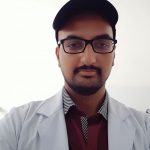
Anish Dhakal (Aryan)
Patan Academy of Health Sciences (PAHS)
MBBS Final Year
Writer is our regular columnist and great analyst in his young age


